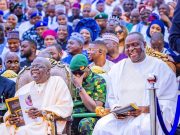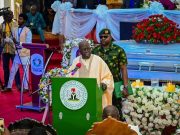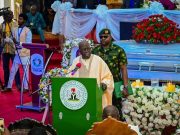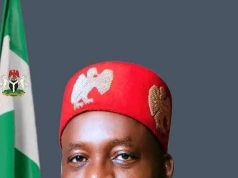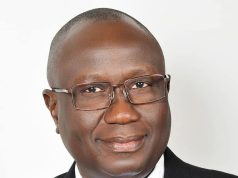A quiet storm is brewing at the highest corridors of power in Nigeria, as Vice President Kashim Shettima makes calculated moves that appear to be shaking the foundations of the Tinubu-led administration. Sources within political circles suggest that Aso Rock is in a state of disarray following Shettima’s recent political romance with key figures such as:
🔹 Former President Goodluck Jonathan
🔹 Former Senate President Bukola Saraki
🔹 Former Kaduna Governor Nasir El-Rufai
🔹 Rivers State Governor Sim Fubara
Inside sources whisper of a political realignment—one that is strategic, deliberate, and possibly paving the way for Shettima’s emergence in 2027 under a new political coalition.

What Shettima Said:
In a bold statement, Vice President Shettima recalled a historic political standoff with former President Goodluck Jonathan during his tenure as Governor of Borno State. He said:
“President Jonathan attempted to remove me from office by declaring a State of Emergency in Borno. But the move was halted when the then Speaker of the House of Representatives, Rt. Hon. Aminu Tambuwal, and the Attorney-General of the Federation, Mohammed Bello Adoke (SAN), rightly pointed out that the 1999 Constitution does not grant a President the power to remove even a councillor, not to mention a sitting governor.”
This comment, while historical in nature, is now being interpreted by analysts as a subtle jab at the current administration and a calculated show of independence.

Shettima’s Silent Steps Toward the ADC?
Amidst the murmurings of a possible movement toward the African Democratic Congress (ADC), political observers describe Shettima’s steps as “surgical and silent but potent.” His recent meetings with political heavyweights who are no longer active within the APC establishment are viewed as early signs of a shift in loyalty or strategy.
Could this be the beginning of a new Northern-led political bloc with Shettima at the center?

What This Means for Tinubu:
The growing closeness between Shettima and perceived opposition figures is rattling nerves in the Tinubu camp. A presidency already battling economic pressures, insecurity, and regional dissatisfaction may now have to deal with internal fragmentation at the highest level.
From the Niger Delta to the North-East, political undercurrents are beginning to surge, and if not carefully managed, they may transform into a tidal wave of power shifts ahead of the 2027 general elections.
©TV AuthorityCan










